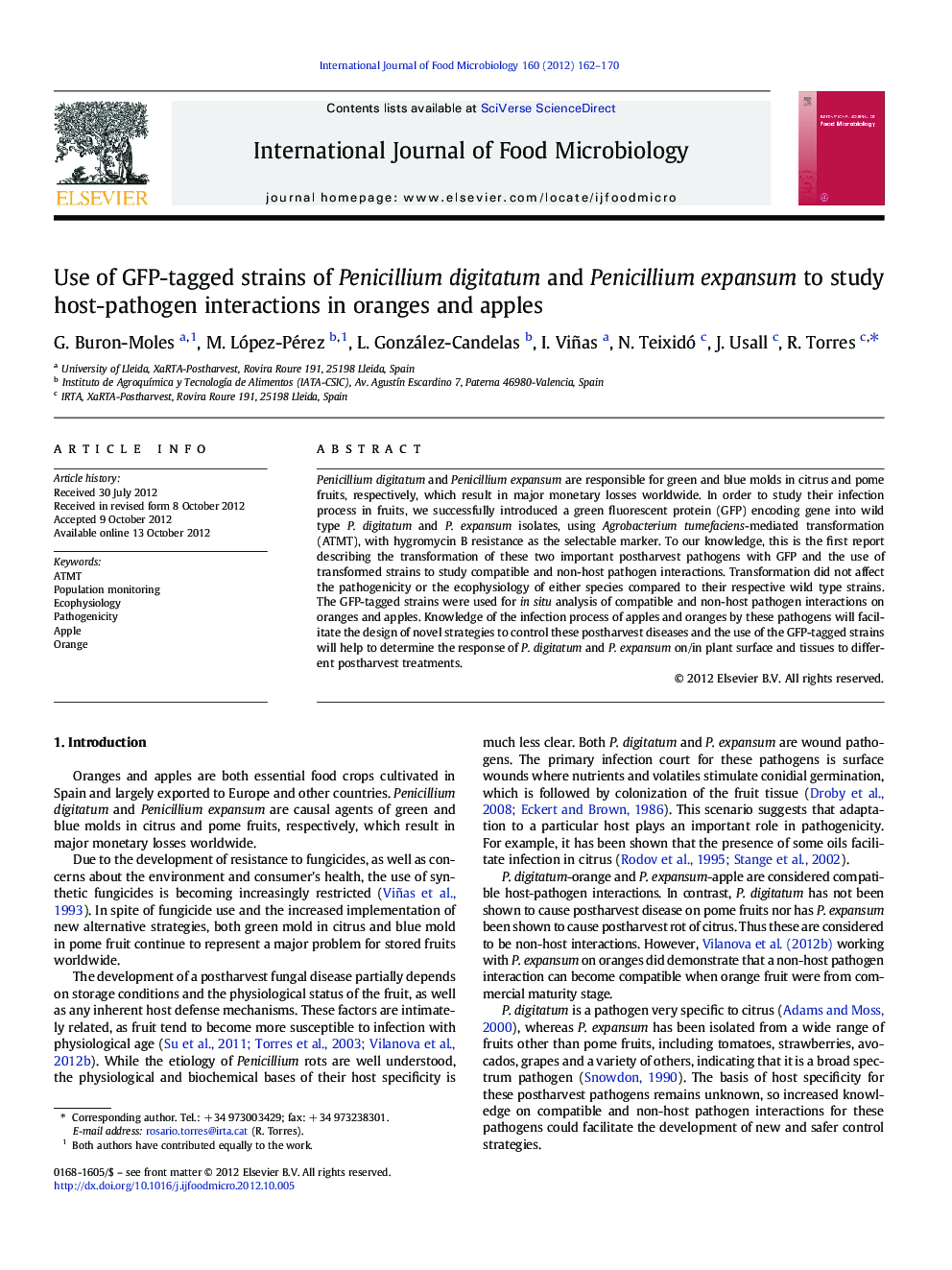| Article ID | Journal | Published Year | Pages | File Type |
|---|---|---|---|---|
| 4367533 | International Journal of Food Microbiology | 2012 | 9 Pages |
Penicillium digitatum and Penicillium expansum are responsible for green and blue molds in citrus and pome fruits, respectively, which result in major monetary losses worldwide. In order to study their infection process in fruits, we successfully introduced a green fluorescent protein (GFP) encoding gene into wild type P. digitatum and P. expansum isolates, using Agrobacterium tumefaciens-mediated transformation (ATMT), with hygromycin B resistance as the selectable marker. To our knowledge, this is the first report describing the transformation of these two important postharvest pathogens with GFP and the use of transformed strains to study compatible and non-host pathogen interactions. Transformation did not affect the pathogenicity or the ecophysiology of either species compared to their respective wild type strains. The GFP-tagged strains were used for in situ analysis of compatible and non-host pathogen interactions on oranges and apples. Knowledge of the infection process of apples and oranges by these pathogens will facilitate the design of novel strategies to control these postharvest diseases and the use of the GFP-tagged strains will help to determine the response of P. digitatum and P. expansum on/in plant surface and tissues to different postharvest treatments.
► GFP-tagged strains of P. digitatum and P. expansum were successfully obtained. ► Transformation did not affect the pathogenicity or ecophysiology of either species. ► P. expansum was able to infect oranges under specific conditions. ► P. digitatum was able to cause a limited infection around the apple wounded tissue.
